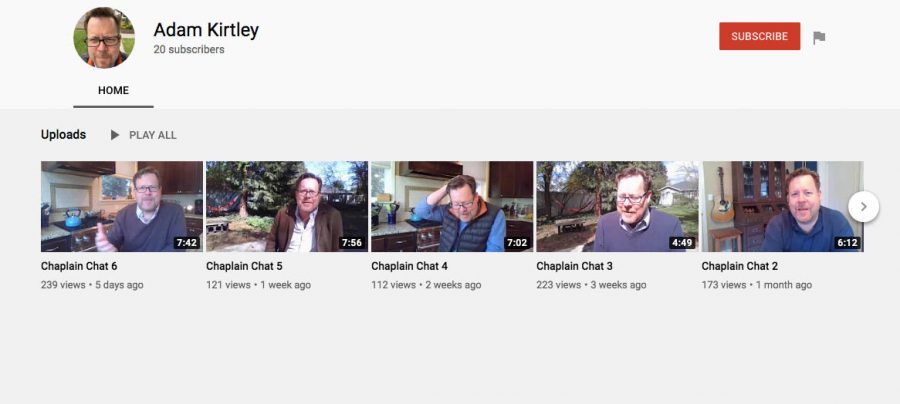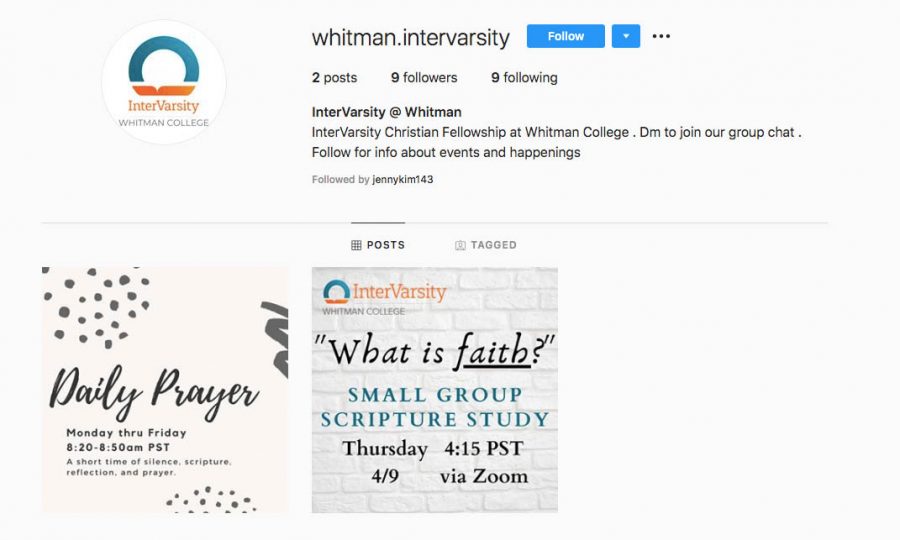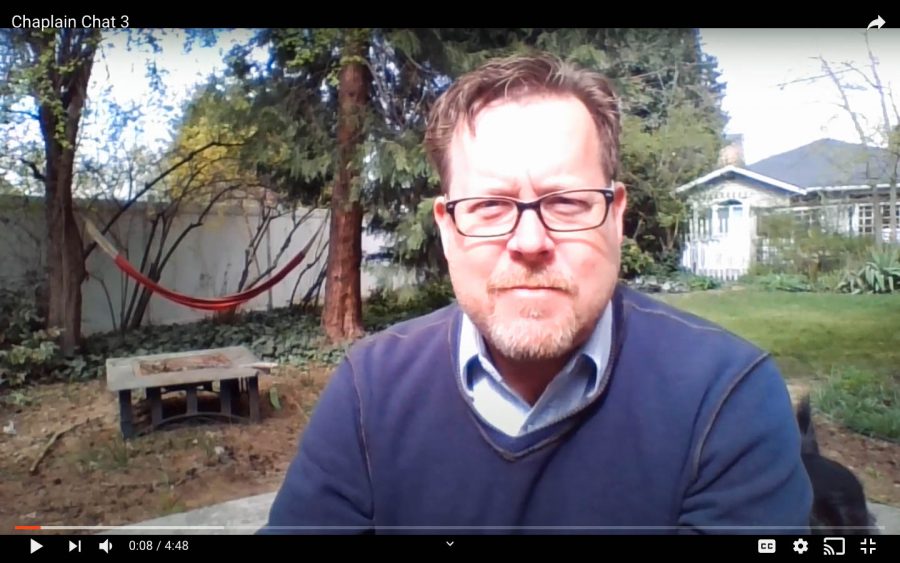Maintaining faith during a pandemic
Photos by Annie Means
April 29, 2020
In the face of COVID-19 and stay-at-home orders, faith communities at Whitman College and around the world have had to adapt their worship.
For the Abrahamic faiths, important holidays occur in April. Easter was on April 12 for most Christian sects, Jewish communities celebrate Passover from April 8 through 16 and Muslims celebrate Ramadan beginning on April 23.
Celebrating these holidays typically involves community celebrations, shared meals and group worship services. With the initiation of the stay-at-home order, many Whitman faith groups have developed their own traditions to celebrate these holidays while away from their families and houses of worship.

Faith leaders at Whitman and beyond have been attempting to use technology to keep their communities connected. Whitman Interfaith Chaplain Adam Kirtley said that his office is sponsoring a weekday prayer with the InterVarsity Christian Fellowship, a weekly relaxation and meditation Zoom stream with Namaste meditation club and events with Hillel-Shalom club.
Initially, Kirtley was unsure of how to adapt his role to supporting students exclusively online. He started using digital formats like YouTube videos to stay connected with the Whitman community.
“I had some real moments of scratching my head and wondering about how to be a chaplain in a virtual context,” Kirtley said. “On the day before I left campus, I turned on my camera and did a little YouTube video — which was the first one I’d even done — which was just motivated by two things, wanting to form a brief moment of connection and community in the midst of isolated times and also recognizing that in the midst of this upheaval and uncertain days…people would appreciate hearing something that was a little bit more authentic and unrehearsed.”
Faith-based clubs have been using services like Zoom and Google Meet to hold meetings and community outreach events. Hillel-Shalom club leader, junior Phyllis Pawa, said that they have been holding their weekly Shabbat services over Zoom and streaming events for the entire campus.
They streamed a tutorial for making matzo ball soup to celebrate Passover and are planning a conversation with survivor Oscar Sladek for Holocaust Remembrance Day on April 21.

Whitman’s chapter of the InterVarsity Christian Fellowship has also been holding events for the campus community online, according to club leader and senior Kristen Wanke.
“Our daily prayer happens from 8:20-8:50 a.m. PST each morning, Monday-Friday. It is co-led by Stephanie, our other student leader, and myself. It has been really great thus far! We tend to have anywhere from 2-5 people in attendance each morning,” Wanke said in an email to The Wire.
The Halal Club has also been preparing to adapt the way that they celebrate Ramadan – a month of fasting, prayer, reflection and community within the Islamic faith – later this month.
“We are planning to appoint someone to cook suhoor and iftar for everyone, and we will stick to social distancing guidelines, but we will chat virtually and talk about this time together,” said Halal Club leader and first-year Ahmed Elsayed. “We are thinking of sending information about Ramadan and the Muslim community in the next weeks to everyone, so that our voice will be heard and our presence will be noticed!”
Technology has served a big role in how students have adapted their personal religious practices as well. Sophomore Kaima Weiss-Penzias said that her family and faith community used Zoom to stay connected over the Passover holiday. Weiss-Penzias’ mother is a rabbi and she has been streaming her services from their home.
“This year was interesting because we just had a Seder with my family of four instead of inviting up to 16 people over. We had so many leftovers! My family normally does two Seders, one at our house and one at another family’s house. It was weird to have both Seders with the same people,” Weiss Penzias said in an email to The Wire.
Conversations around social distancing and faith have even reached Whitman classrooms.
Assistant Professor of Religion Lauren Osborne has an interest in how religious practice is mediated through media and technology and is co-teaching a class called “Mediating Religions.” In class, has been giving students an option to write about religion and COVID-19.
She has been studying it as well.
“I’m working on a short video lecture discussing the perspectives on COVID-19 of different Muslim intellectuals in North America,” Osborne said in an email to The Wire, “both unpacking the specifics of their arguments regarding COVID-19 but also asking what their perspectives might tell us about Islam in North America right now.”






